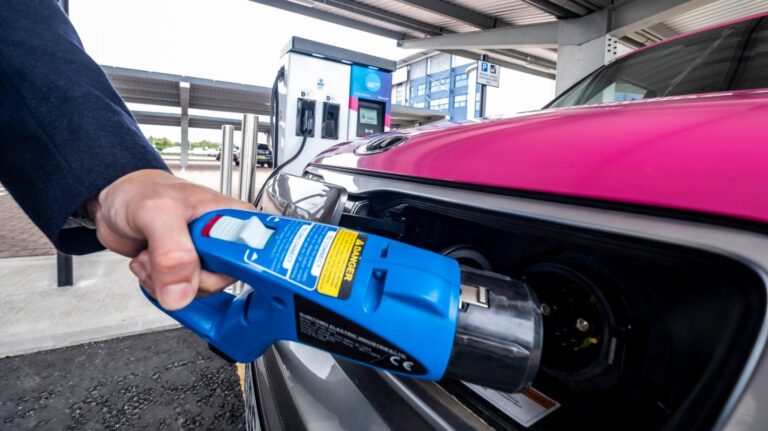Private sector investment will play a critical role in Scotland’s plan to deliver 24,000 additional public electric vehicle (EV) charging points by 2030, according to the Scottish government’s newly published Draft Implementation Plan.
The plan outlines 15 key actions to drive the growth of public charging infrastructure, with the private sector expected to take on a leading role in supporting Scotland’s vision for an accessible and comprehensive EV charging network.
The initiative builds on Scotland’s existing progress, having reportedly achieved its target of 6,000 public EV charge points in October 2024 – two years ahead of the 2026 deadline – through a combination of public funding and private sector investment.
To meet the significantly larger goal of 24,000 additional chargepoints, the Scottish government aims to further leverage private sector involvement, recognising that public funding alone cannot sustain the required expansion.
Scottish cabinet secretary for transport Fiona Hyslop said: “The draft plan outlines how the private sector will take on a leading role,” she said.
“Our consultation is now open, and I would encourage anyone with an interest in electric vehicles and public charging to have their say and help inform our finalised implementation plan which we will publish next year.”
READ MORE: Transport Scotland wins ‘Clean Air Initiative of the Year’ at CiTTi Awards 2024
Vicky Read, CEO of industry body ChargeUK welcomed the initiative and noted the importance of coordinated action. “For the rollout to go further and faster, we need the support of DNOs and local authorities, and we are looking forward to working with the Scottish government to deliver this.”
According to ChargeUK, its members have committed to investing £6bn in growing the public EV charging network across the UK by 2030.
Private sector investment is said to already be ramping up. According to the Scottish Futures Trust, the private sector invested an estimated £25m to £35m in expanding public EV charging infrastructure in 2023, with a projected increase to between £40m and £55m in 2024.
While plans for future investment remain commercially confidential, analysis suggests that substantial future investment is planned.
Looking ahead, the Scottish government believes that achieving the goal of 24,000 additional chargepoints will require an eightfold increase in private sector investment over the next five years.
Industry insights from ChargeUK indicate that chargepoint operators are already working to exceed current growth rates, driven by the commercial imperative to secure market share and attract customers.
READ MORE: Scotland’s net zero truck fleets need charging points on busy freight routes, report finds
Scotland’s Draft Implementation Plan also sets out the role of public funding in supporting EV infrastructure.
Since 2011, the Scottish government has reportedly invested more than £65m in public EV charging infrastructure, resulting in the number of public charge points rising from 4,023 in June 2023 to 6,007 by October 2024 – a 49% increase.
This means that, on a per capita basis, Scotland now has more public EV chargepoints than any part of the UK except London, and it leads the UK in the availability of rapid charging points.
Hyslop added: “Transport remains the largest cause of greenhouse gas emissions, and EVs enable drivers to take climate action and cut harmful emissions.
“We need to ensure that people from all parts of Scotland can benefit from this switch to EVs, so that no one and no part of the country is left behind.”
The Draft Implementation Plan is now open for public consultation, inviting stakeholders, industry experts and the general public to contribute their views before the final Vision Implementation Plan is published later in 2025.
The outcome of the plan is expected to have significant implications for Scotland’s ability to meet its carbon reduction targets and facilitate a seamless transition to EVs for its citizens.





